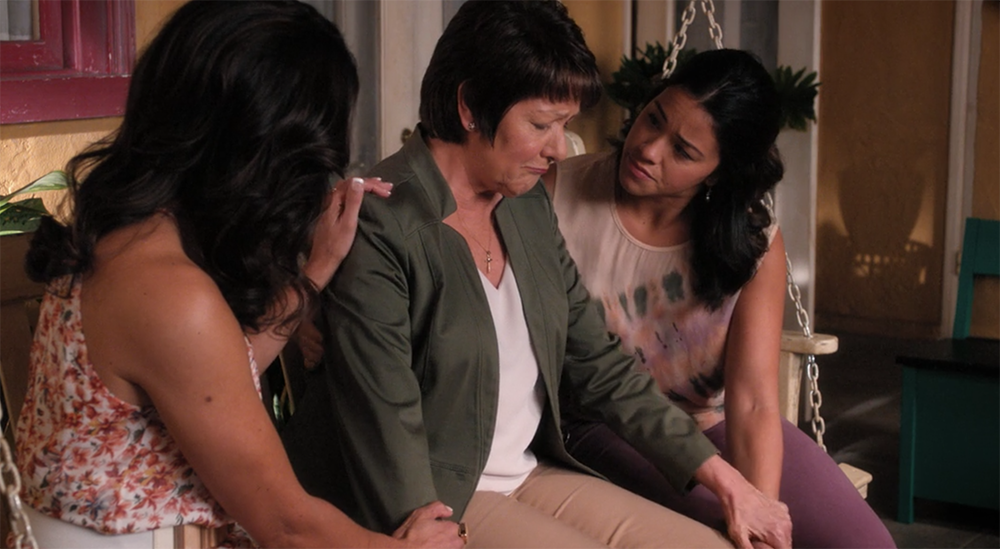
With humble roots as a North American take on classic Hispanic telenovelas, Jane the Virgin has grown into a show that hits hard on political issues.
Jane the Virgin begins as a charming show revolving around the main character Jane getting accidentally artificially inseminated with a rich hotel owner’s baby. While the show has continued with humorous plotlines, it’s lately gotten political as well.
For starters, the show has a Hispanic/Latino majority cast and roughly 15 per cent of each episode is spoken in Spanish, with subtitles. Although it might not seem like it, this representation is political itself.
Hispanic and Latino actors don’t often get a lot of screen time in shows that are North American. Shows like Modern Family and Ugly Betty have featured Latino characters, but not in the same way as Jane the Virgin, which gives viewers a more well-rounded view of Latino culture.
Making sure the show is as realistically Hispanic as possible by having Spanish-speaking cast members was a political decision in the face of lots of backlash from the government towards the Latino community. This gives this minority group, whose voice is often shut out from political decisions, a way to express their feelings in American politics.
Not only this, the show also revolves around women who are all extremely independent and strong. Jane, her mother Xiomara and her mother Alba all raised their children on their own and are the three most important people in Jane’s son Mateo’s life.
Having this sort of representation on TV is already very political and significant.
The show works to tackle immigration issues head on. From the very beginning, Jane’s grandmother Alba had a plotline focused around being an illegal immigrant from Venezuela and the hardships she faces in her position.
Throughout the show, Alba has struggled with the potential rejection and deportation that’s associated with applying for a green card. She eventually decides to apply and successfully receives status in the United States.
This provides a really good representation of the type of people who may face the struggle of being an illegal immigrant. It can be easy to form opinions on people or issues that are broad and seemingly distanced from one’s own reality, but having this sort of representation can help educate people on what an illegal immigrant in North American can actually look like.
Governments have a way of demonizing illegal immigrants but Jane the Virgin works to push against this stereotype and bring a different perspective to the forefront.
In a recent episode, a woman hears Alba speaking in Spanish at her work and tells her to go back where she belongs in front of Jane’s four-year-old son Mateo. Throughout the episode, Mateo is visibly distraught and finally tells Jane he doesn’t understand why people wouldn’t want his “abuela” in the country.
Jane answers by telling him “that is a really hard question because this country was founded by people who come from all over, like your great-grandmother, because they dreamed of a better life with more opportunity, some people just can’t see that and that’s just a stinky old fact.”
The show also comments on the increase of Immigration and Customs Enforcement raids and about the importance of marching for women’s and immigrant’s rights.
In a time of political unrest and questions about immigration throughout North America, having a show like Jane the Virgin that works to show another side of the same story politicians are telling is beneficial to everyone involved.
For a show that started as a romanticized way of telling an overdramatic story, Jane the Virgin has without a doubt found its groove by making an important political statement.
Tags
American politics, immigration, TV
All final editorial decisions are made by the Editor(s)-in-Chief and/or the Managing Editor. Authors should not be contacted, targeted, or harassed under any circumstances. If you have any grievances with this article, please direct your comments to journal_editors@ams.queensu.ca.
